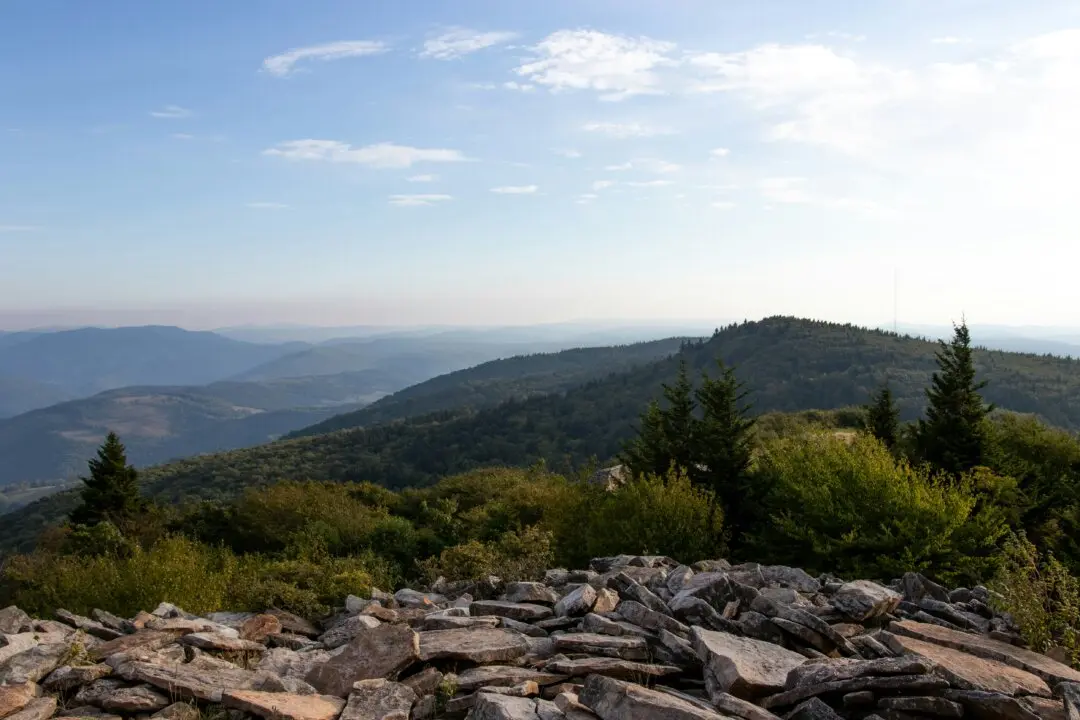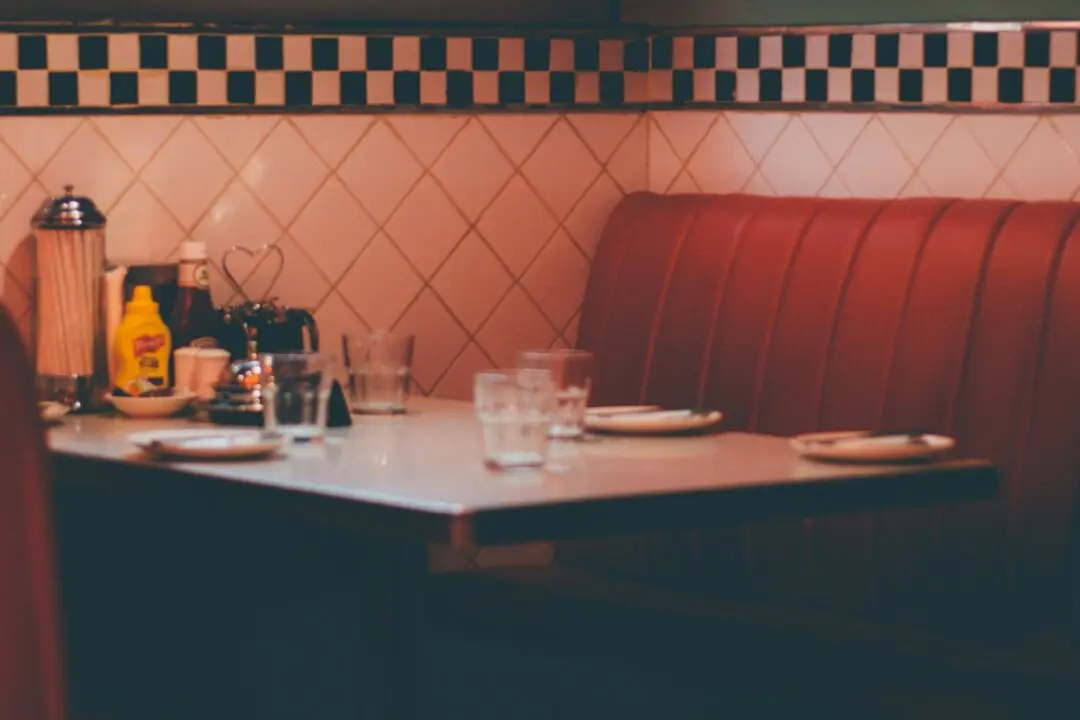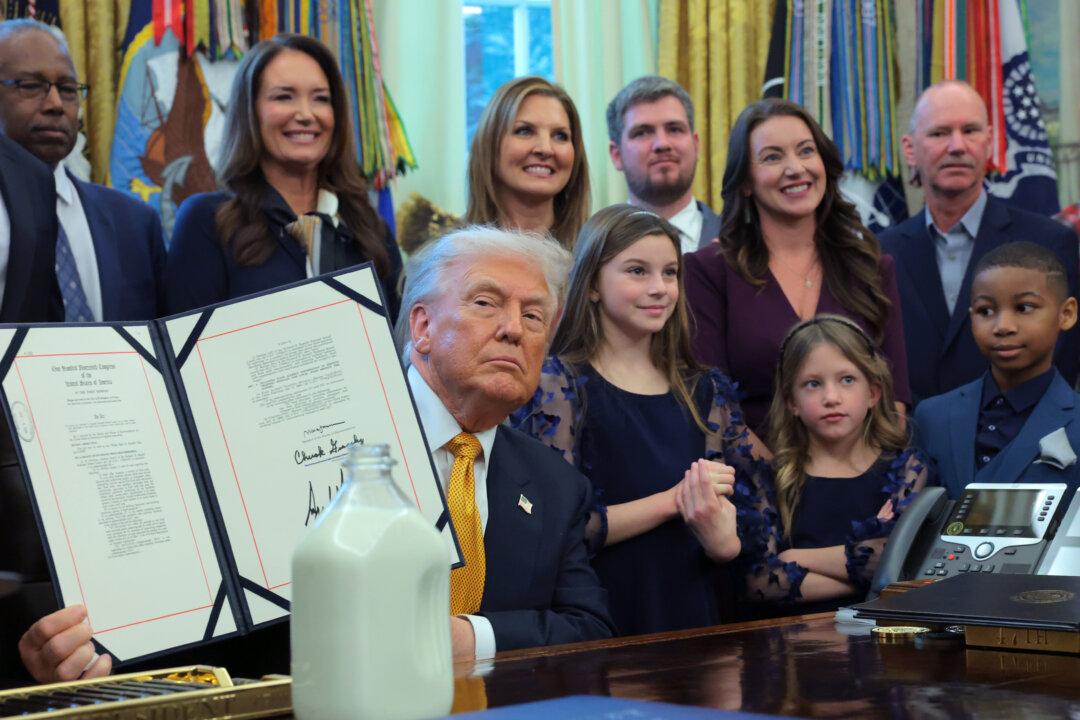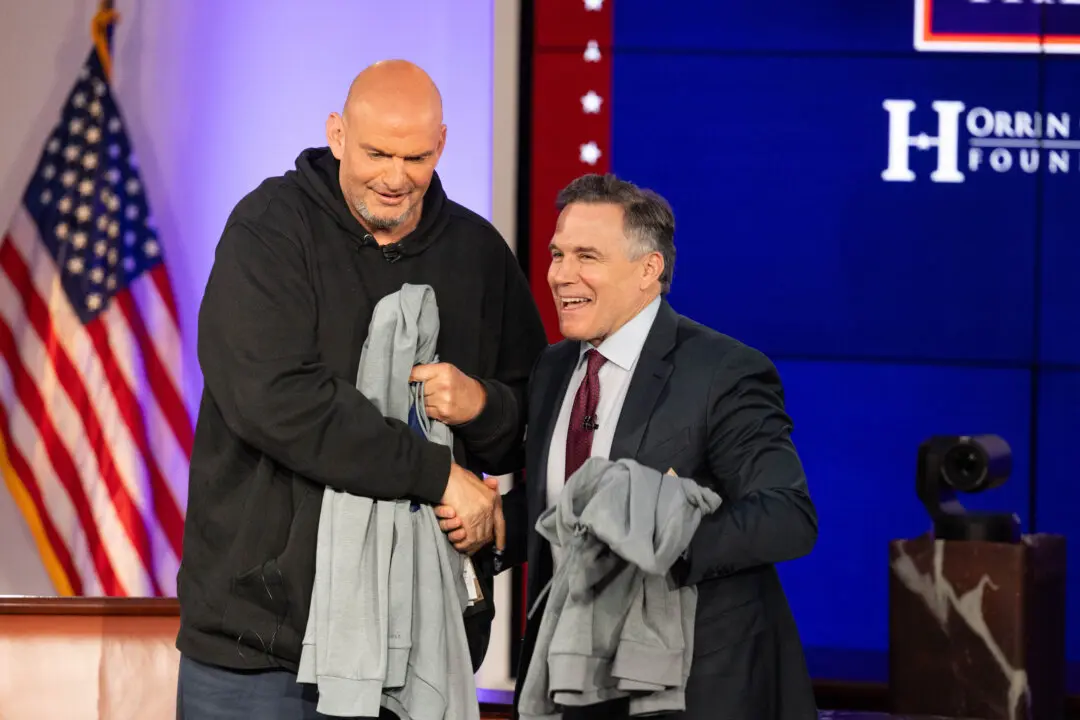Commentary
BRISTOL, Tenn./Virginia State Line—Joe Deel is behind the chrome-trimmed turquoise counter of his legendary diner, the Burger Bar in Virginia, working with his wife, Kayla; daughter Emily; and sous chef, Corey Young. They can see people going to lunch at the State Line Bar and Grill in Tennessee, just across the street and less than 50 yards away. But their round, black-topped stools remain as empty as they were nearly two months ago when the coronavirus first shut down the country.





